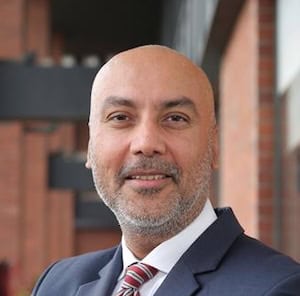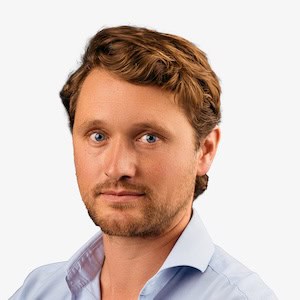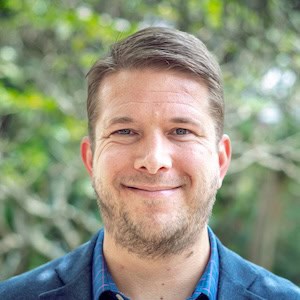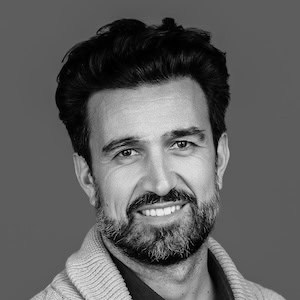-
Better Neighborhood, Better Life: What Research Shows About Investments in Equitable Development
Research shows that a child's neighborhood impacts professional outcomes and earnings, and that environment plays a role in exacerbating racial inequality. That's why JPMorgan Chase is working with lenders across the U.S. on a new approach to community development – one focused on neighborhood revitalization. Colleen Briggs discusses Partnerships for Raising Opportunity in Neighborhoods, a $125 million, five-year capital commitment to help communities fuel economic growth.
- Categories
- Finance, Impact Assessment
-
Tackling Poverty Close to Home: Why Acumen is Boosting Financial Health in the U.S.
More than 40 million Americans live below the poverty line, and a majority live paycheck to paycheck. That's why, after nearly two decades and over $110 million of impact investments in Africa, Asia and Latin America, Acumen has expanded its focus to include the United States. Amon Anderson and Sarah Willis discuss how Acumen America, through its financial inclusion portfolio supported by MetLife Foundation, aims to build a future where low-income Americans enjoy stability, protection and prosperity.
- Categories
- Finance, Investing, Social Enterprise, Technology
-
We’re Undervaluing Value Addition: How Ag Processing Will Fortify Food Security, Incomes and Development
The world's cocoa farmers get only 3 percent of the value of a chocolate bar, and Africa, home to 60 percent of the world’s arable land, is a net importer of food that could be processed at lower cost on the continent. The problem is that agriculture producers in emerging markets grow the crops only to watch as others grab the profits. The solution, says Donna Rosa, is to improve the solid food processing industries in developing countries.
- Categories
- Agriculture, Social Enterprise
-
The Demonetization Crisis May Be Over, but the Time for Tech Upgrades in Indian Microfinance Is Now
India's 2016 banknote demonetization sent shockwaves through the country's microfinance sector, causing MFIs to write off US$ 1.1 billion in bad loans. In response, cash-dependent MFIs stepped up investment in fintech – but now that the crisis has passed, so perhaps has their sense of urgency. Elliot Rosenberg of Awaaz.De argues that the need to embrace tech is as strong as ever.
- Categories
- Finance, Investing, Technology
-
WASH Away Inequity: Lack of Access to Safe Water is the Most Crippling Obstacle Limiting Human Potential
On World Water Day, consider that 844 million people (nearly 1 in 9) lack a drinking water source that is accessible within a 30-minute round trip from their home. But though this problem can be solved by installing a tap or rain harvesting system, the upfront cost of up to $200 is often prohibitive for people living in poverty. Water.org co-founder and CEO Gary White highlights the power of the poor, when given affordable financing, to provide their own solution to the global water crisis.
- Categories
- Environment, Investing, WASH
-
With the 2030 SDGs Looming, the Public and Private Sectors Team Up for Global Health
Global health funding is no longer the sole purview of local governments and international donors. Despite large contributions (nearly $8 trillion in 2013) from traditional donors, there is still a critical funding gap of $2.5 trillion annually – in developing countries alone – to achieve the U.N.'s 2030 Sustainable Development Goals. Fortunately, public and private actors are teaming up to close that gap. Rachel Fowler of USAID discusses some intriguing examples, including a first-of-its-kind development impact bond aiming to reduce maternal and newborn deaths in Rajasthan, India.
- Categories
- Health Care, Investing
-
Egypt on the Precipice: Can Fintech Pave the Way for a More Inclusive Financial System?
Financial inclusion in Egypt has persistently lagged behind similar economies for decades. But the country now has all the hallmarks of a market ready to leapfrog: a young population, an enthusiastic embrace of social media, and more mobile subscriptions (110 million) than its population. Sarah Willis of MetLife Foundation and Mayada El-Zoghbi of CGAP lay out four criteria that Egypt must meet to bring meaningful financial services to its low-income communities.
- Categories
- Finance
-
On Pioneering Capital, Mentorship and Accelerators: It Turns Out You Can Do (A Lot) More With Less
Less than 3 percent of impact investment funds made their way to early-stage ventures in 2017. Sachi Shenoy and Nathan Byrd of Upaya Social Ventures believe the impact investing sector must do better. After several years of investing pioneer capital in social enterprises, they offer several solutions that take advantage of a "less is more" philosophy.
- Categories
- Impact Assessment, Investing, Social Enterprise










